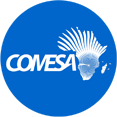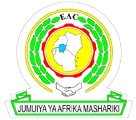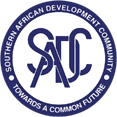Complaint
- Complaint number
- NTB-001-169
- NTB Type
- 7.2. Discrimination
- Complaint
- Republic of Burundi is charging USD 152 Flat rate on Road user Charges from Kobero/Kabangato Bujumbura which is equivalent to USD 65.5 per 100KM, While Tanzania is charging USD 10 per 100KM. This discriminatory charge is contrary to directives made on the 18th Meeting of Sector Council on Transport,Communication and Meteorology
- Progress update note
-
1.The 18th Sectoral Council (TCM) Directed:
(a) Partner States to apply the distance + weight (axles) charging principle;
(b) Partner States that use flat rates to abolish them and adopt distance + weight (axles) charging principle.
(c) Partner States to charge Road User Charges based on the following three categories of vehicles:
● Buses;
● Trucks of three or less axles; and
● Heavy Goods Vehicles of more than three axles (truck with a drawbar trailer or articulated vehicles / semi-trailers);
(d) Partner States applying COMESA harmonized rates between themselves to continue doing so;
(e) Partner States to reciprocate the distance + weight (axles) rates charged by counterpart states;
(f) The Secretariat to prepare Terms of Reference for a study to review the existing Road User Charges and develop harmonized charging formulas to be applicable in the EAC;
(g) Secretariat to mobilize funds for the study in (vi) above;
(h) Foreign registered vehicles to be charged RUCs on the basis of a round trip from the point of entry to the destination and back provided the destination is within the country of entry;
(i) Partner States to always display the gazetted RUC rates at all points of entry; and
(j) Partner States prepare a schedule of distances and their respective computed charges from their point of entry to various destinations within their respective territories and display them at all points of entry.
2. Updates from the 45th Council of Ministers:
The NTBs on Road User Charges were also considered by the 45th Council of Ministers which noted the following submission from Partner States:
The Republic of Rwanda informed the Council that:
(a) The decision of TCM to calculate the Road User Charges based on weight and distance is discriminatory in nature. It favors big states and discriminates against smaller ones. In view of the above, Rwanda being a small state and landlocked as well cannot accept being punished based on its size.
(b) The EAC Partner States had gone beyond this level by harmonizing fees and charges. The harmonization of charges, Levies and fees is ongoing. From 1 7 to 21 June 2024 in Entebbe - Uganda, the Community convened a regional meeting to identify and compile Fees, Levies and charges in Agriculture and Transport Sectors. The Republic of Rwanda proposes to continue in the same spirit of harmonizing charges and fees by putting in place flat rates.
(c) That Road User Charges which are calculated based on axle load and distance should only apply to cargo trucks which originate from non-EAC Partner States i.e. SADC & COMESA Countries. EAC Partner States should enjoy equal benefits of regional integration by removing anything identified as barriers
(d) That high transportation costs, including levies, fees, and charges, result in higher final prices, impacting businesses, trade, and end consumers, particularly in landlocked countries.
(e) There is a need for the EAC to agree on fair and fact-based Road User Charges, not only focusing on micro-level factors like axle load / weight and distance but also considering other factors that favor all of us as a region
(f) There is a need to do a study to determine the impact of the Road User Charges on the EAC economies.
3. The Republic of Burundi informed the Council that:
(a) The bilateral meeting between the Republic of Burundi and the United Republic of Tanzania as directed by the TCM has not yet been convened by the Secretariat; and
(b) They were still consulting on the matter.
4. The Council therefore observed that:
(a) Road User Charges are intended for infrastructural development and maintenance, end-to-end facilitation of transportation, and not revenue; and
(b) All the Partner States participated in the meeting of the Sectoral Council on TCM that adopted the proposals and recommendations of the Sectoral Council on TCM on harmonization of Road User Charges.
The Council directed the Secretariat to refer the Harmonization of Road User Charges in the Community back to the Sectoral Council on Transport Communication and Meteorology (TCM) for consideration and report back to the 46th meeting of Council (EAC / CM 45 / Directive 56).
Update from the 19th Sectoral Council on TCM:
The 19th Sectoral Council on TCM considered the matter and received inputs from Partner States as follows:
United Republic of Tanzania
Tanzania provided a presentation containing the background, findings and recommendations on the issues of Road User Charges as follows:
(i) Prior to the 18th TCM, United Republic of Tanzania was charging a rate of USD 16 / 100km for vehicles over three axles and USD 6 / 100 km for vehicles of up to 3 axles;
(ii) After the 18th TCM, United Republic of Tanzania reviewed her rates to USD 10 / 100km for vehicles above three axles and USD 06 / 100 km for vehicles below three axles
(iii) Under the road-user principle, road users are supposed to pay RUCs to compensate damage caused by vehicles;
(iv) There is need for non-discriminatory charging for road users from foreign vehicles;
(v) Studies reveal that the principles to be used to calculate RUCs should be foreign operators to pay for road use; non-discrimination and charges related to damage caused on the road infrastructure.
Uganda
5. Uganda submitted that:
(i) All roads are paid for by citizens through taxes and there are no free roads
(ii) Roads have a design life, and the main cause of deterioration is the weight (load carried by vehicles), and the distance moved. The heavier the weight carried the more the degradation and the longer the distance the more the degradation; hence the higher the repair costs required;
(iii) Road user charges are not profits for utilization of the roads but a contribution for the maintenance and repair of the roads;
(iv) The position of the 18th Sectoral Council of TCM is not discriminatory at all as it stipulates that whoever degrades the roads should meet a proportionate contribution to their repair and maintenance; moreover, all Partner States were involved in making that decision;
(v) The weight + distance consideration in the road user charge is an equitable basis for contributing to the maintenance and repair of roads;
(vi) Tanzania has already carried out a study similar to the one being proposed by some Partner States whose results were shared in the meeting, and they support the weight + distance basis for determining the road user charges;
(vii) Deferring the decision on the user charges will cause an unnecessary vacuum which will have serious effects in the road sector; the largest mode of transport at the moment.
The Republic of Uganda therefore supports the position of the 18th TCM.
Burundi
6. Burundi was of the view that landlocked countries should not be disadvantaged to access the world markets through high transit charges along coastal countries. The fixed rate for RUCs should be maintained. The RUCs include fuel levy for road maintenance, vehicle license fees, international transit fees and others such as congestion fees. The concern raised by Burundi is that RUC should be restricted to transit fees. The road user from neighboring countries pay for damage to the road network is catered for by the fuel levy.
Rwanda
7. Rwanda was of the opinion that the rates should be determined by the Committee responsible for fees, charges and levies since that committee handles all sectors of the economy that includes all modes of transport. What was needed was the timeline within which to harmonize the charges. The charges incurred by transporters are actually borne by the citizens, who are the end users of the cargo being transported.
Kenya
8.Kenya supports the directives of the 18th TCM. However, EAC Secretariat was supposed to prepare TORs for a regional study on harmonized RUCs. Alternatively, the study could be done by a TWG. Through a bilateral arrangement, Kenya and Tanzania harmonized their charges to comply with COMESA rates. But the proposed study by the Secretariat should take into account the principals. further, the quality of roads in the region are not the same, hence there was a need to harmonize the road quality standards so that the cost of maintenance of roads is similar for all countries.
9.The Secretariat clarified that the draft TORs had been prepared but needed to be updated and submitted to Partner States for review in two weeks. Regarding the modality for the study, the TCM had agreed that the study be carried out by an independent consultant oversighted by a technical working group. The issue of RUCs is also an agenda in SADC and COMESA and, therefore, is a Tripartite issue. Currently discussions are ongoing with the EU and TMA, and it is hoped that a solution will be found.
Conclusion
11. Uganda, Kenya and Tanzania were of the opinion that the principles of charging agreed by the 18th TCM (distance + weight) should be maintained, as the region awaits the outcome of the study by the Secretariat. However, Rwanda and Burundi positions are that the charges should be further analyzed by the Committee on rates, fees and levies.
12. The meeting noted that the 19th TCM among others reiterated its directive to Partner States applying the COMESA rates on RUCs as directed by the 18th TCM (EAC / TCM 19 / Directive 08).
The Republic of Rwanda and Republic of Burundi were of the view that the study should come first before implementation of the TCM Directives.
Permanent / Principal / Under Secretaries noted the need for the study by TCM on harmonization of road user charges, as they have direct impact on the cost of doing business in the Region and be subjected to the joint consideration by the Sectoral Council on TCM and SCTIFI.
The Sectoral Council on Trade, Industry, Finance and Investment took note of the directives of the Sectoral Council on Transport, Communications and Meteorology on the harmonized road user charges; and recommended to Council to direct the Secretariat to convene a joint meeting of the Sectoral Council of the Sectoral Council on Transport, Communications and Meteorology and Sectoral Council on Trade, Industry, Finance and Investment to consider the recommendations of the study on the harmonization of road user charges once finalized by the Sectoral Council on Transport, Communications and Meteorology (EAC / SCTIFI 45 / Directive / 47).
The 46th Council considered the NTB and gave the following directives:
(a) directed Partner States applying COMESA harmonized rates between themselves to continue doing so (EAC/CM 46 / Directive 17);
(b) directed Partner States to retain status quo with respect to the Road User Charges (EAC/CM 46 / Directive 18); and
(c) direct the Secretariat to prioritize and expedite undertaking the study on harmonization of EAC Road User Charges within six months and report to the 47th Council. (EAC/CM 46 / Directive 19)
2.The 46th Council considered the NTB and gave the following directives:
(a) directed Partner States applying COMESA harmonized rates between themselves to continue doing so (EAC/CM 46 / Directive 17);
(b) directed Partner States to retain status quo with respect to the Road User Charges (EAC/CM 46 / Directive 18); and
(c) direct the Secretariat to prioritize and expedite undertaking the study on harmonization of EAC Road User Charges within six months and report to the 47th Council. (EAC/CM 46 / Directive 19)
13.During 39th RMC, Burundi informed the meeting that, she is still waiting for the outcome of the study. - Policy or regulatory NTB
- No
- Location
- Burundi: Rugerero (Border post)
- Reporting Country or Region
- Tanzania
- Country specific trade issue
- No
- Date of incident
- 2024-01-01
- Status
- In process
- Product Description
-
Road User Charge
- Total value
- 152.00
- Date reported
- 2024-05-28 14:17
- Modified
- 2024-11-23 15:51
Messages
No messages



 English
English Français
Français
